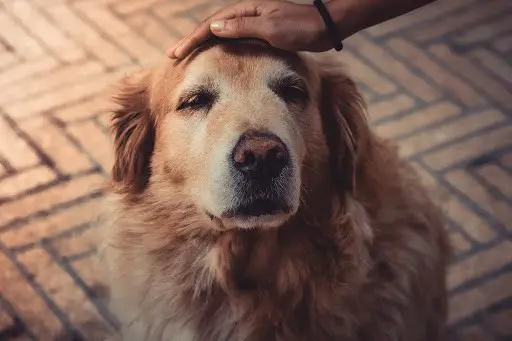Treatment for Cushing’s Disease in Dogs
posted by Joey C on December 6, 2020
// Comments Off on Treatment for Cushing’s Disease in Dogs
Treatment for Cushing's Disease in Dogs
Owners of elderly or senior dogs know that their beloved pets can become prone to certain health issues as they age. So it is advisable to be on the lookout for symptoms that are out of the ordinary. Is your dog looking bigger than usual, or with an unbecoming potbelly? Do you notice an increase in thirst and constant panting? Or how about low energy and hair loss? These could be telling signs of Cushing’s disease in dogs. We hope that you find this Treatment for Cushing's Disease in Dogs valuable.
Cushing's disease, also known as hyperadrenocorticism, occurs when a dog's body produces too much cortisol, a hormone produced by the adrenal glands. While there's no cure, several treatment options aim to manage the symptoms and improve your dog's quality of life. Cushing’s disease occurs from a benign tumor in the pituitary gland. The gland is part of the endocrine system that produces hormones. One or two tumors can form directly on your dog’s adrenal glands which will activate an overproduction of cortisol. Since cortisol is a natural steroid, an overabundance of this can expose your dog to several medical issues.

Treatment for Cushing's Disease in Dogs
Medication
- Trilostane (Vetoryl): The most common medication, it suppresses cortisol production in the adrenal glands. Requires dosage adjustments and regular monitoring.
- Mitotane (Lysodren): Destroys adrenal gland tissue, potentially offering a “cure” but with significant side effects and requiring hospitalization.
- Selegiline (Anipryl): Lowers cortisol production indirectly, often used in combination with other medications.
- Ketoconazole (Nizoral): May have some cortisol-lowering effects but is generally used for other purposes.
Surgery
- Adrenalectomy: Removal of the affected adrenal gland; ideal for localized tumors but can be risky and expensive.
- Pituitary surgery (uncommon): Removal of the pituitary tumor causing excess cortisol production; highly specialized and risky.
Standard treatment for Cushing’s disease will require an array of intense and powerful medications that can affect an older dog’s health, especially if it has other existing health problems such as kidney and liver disease. Through the consultation of your local veterinarian, you may consider a more holistic approach and use natural treatments such as melatonin, lignans which are popular in Chinese herbal medicine, supplements, and a well-balanced diet. Natural treatments have been proven to be more effective in the early stages of the disease and create fewer complications with senior pets, so it is imperative to get your dog tested immediately when you see some worrying signs.
Sleep Easy Have a Good Rest
Melatonin
The use of melatonin is a milder and more effective way to treat your dog suffering from Cushing’s disease. Plants and traditional Chinese herbal medicines commonly contain melatonin. A dog can naturally generate its melatonin through the pineal gland situated in the brain. The optic nerve sends a message to the pineal gland when nighttime approaches to secrete melatonin. Melatonin for dogs is known to provide antioxidants, induce sleep, maintain the body’s circadian rhythm, assist in canine alopecia, balance hormones that minimize the growth of tumors, and have cooling effects that can aid in alleviating the symptoms of Cushing’s disease. Make sure to get a neutral-flavored product to ensure it is in its purest form. Always consult with your dog’s veterinarian to ensure the right dosage when combined with other medications.
Suggested Melatonin Dosage Guide
- Dogs under 25 pounds need to take 1.5 mg of melatonin once or twice daily
- Dogs that are with medium to larger frames need 3 mg of melatonin once or twice daily
- Do not exceed a melatonin dosage of 3-6 mg every 8-12 hours. Only administer melatonin at night if you observe your dog is always sleepy.
Lignans
Lignans are found mainly in plants, seeds, grains, and vegetables. They are a large group of molecular-weight polyphenols. In traditional Chinese medicine, flax seeds which are rich in lignans are used to alleviate intestinal and gastric issues and soothe dry skin and hair loss associated with alopecia. Lignans are particularly effective in addressing symptoms of Cushing’s disease because they lower the estradiol and cortisol.
Suggested Lingnans Dosage Guide
- 1 mg of flax hull lignans per pound of your dog’s body weight, once daily.
- A combination of melatonin and Lingnan is successful in treating senior dogs suffering from Cushing’s disease.
5 Tips for Taking Care of Your Pets
Supplements
The use of dietary supplements can help provide added vitamins, botanicals, minerals, amino acids, and enzymes to your dog’s health. Supplements strengthen your dog’s immune system which is essential in fighting infections that are brought about by aging and the effects of Cushing’s disease. Consult with your holistic practitioner or veterinarian before giving your dog any added supplements. Supplements with glandular meats and fish oil are known to aid your dog’s adrenal function and heal an irritated scalp and skin all the while promoting hair growth.
A new nutrition plan
Updating your pet’s diet is a good way to improve its overall health and well-being. Kibble may be a convenient choice, but it is high on carbohydrates which can lead your dog to become more obese and will mean more health troubles as they age. Switching to a balanced diet mixed with beans, potatoes, and peas mixed with raw or cooked meat can yield the best results. It will help build up your dog’s immune system to fend off infections. Cut down the sodium and saturated fats, and provide a steady supply of clean drinking water, proteins found in meat organs, fiber, and vitamins from vegetables and fruits to get your senior dog feeling its best.
Explore acupuncture
The traditional Chinese treatment of acupuncture engages the use of thin needles that are pricked through a person’s skin at specific points in various places throughout the body. The ancient Chinese method is proven to work on dogs too. It can help reduce pain, and inflammation, balances the endocrine system, and is a holistic cure to the symptoms of Cushing’s disease. Older dogs with arthritis and joint inflammation are usually subjected to the practice of acupuncture.

Photo by Jean Alves from Pexels
Choosing the Right Treatment
The best treatment depends on several factors, including:
- Cause of Cushing's: Pituitary-dependent (most common), adrenal-dependent, or iatrogenic (caused by medications).
- Dog's age, health, and overall condition.
- Severity of symptoms and response to initial treatment.
Important to Remember
- Treatment is usually lifelong. Regular monitoring and dosage adjustments are crucial.
- Medication can have side effects. Monitor your dog closely and report any concerns to your veterinarian.
- Diet and exercise can play a supportive role. Discuss any dietary changes with your veterinarian.
- Consult your veterinarian for personalized advice. They can help weigh the benefits and risks of each option and create a treatment plan best suited for your dog.
Main Tips for a Healthy Body Odor
Resources
Please remember that I am not a substitute for professional veterinary advice. Always consult your veterinarian for accurate diagnosis and treatment plans for your dog's specific condition. Natural and holistic treatment has become a more popular choice among dog owners because it does not carry the harsh side effects of pharmaceutical drugs. Melatonin, flaxseed, dietary change, and supplements combined with exercise can make a significant difference to your dog’s health as it battles Cushing’s disease.
Treatment for Cushing's Disease in Dogs
The symptoms of Cushing’s disease in dogs can be misleading because it can appear like the usual signs of aging. Be conscientious in bringing your senior dog for regular check-ups at the veterinarian’s office to be able to catch the disease in its early stages. Early detection means a better chance for recovery. Always consult with a veterinarian to discuss what will best work for your dog’s needs. The goal is to provide comfort in their later years, which is the least we can do to repay our dog’s loyalty and unconditional love. We hope that you find this A Natural and Holistic Treatment for Dogs with Cushing's Disease post valuable. Good luck!
WE LOVE OUR FURRY FRIENDS ~ More for Dogs:

7 Benefits of Having a Pet
Comments Off on Treatment for Cushing’s Disease in Dogs







